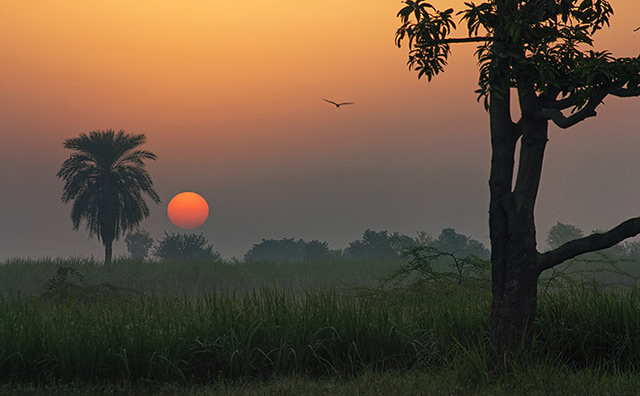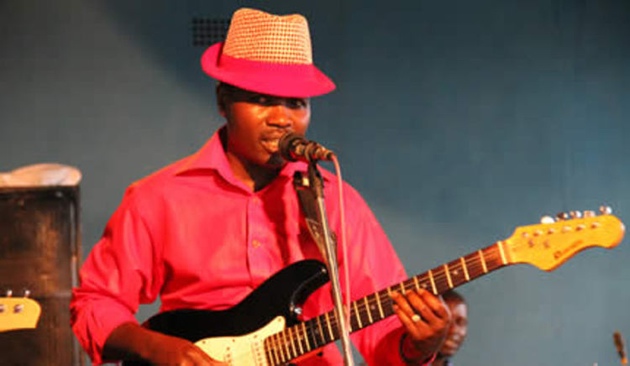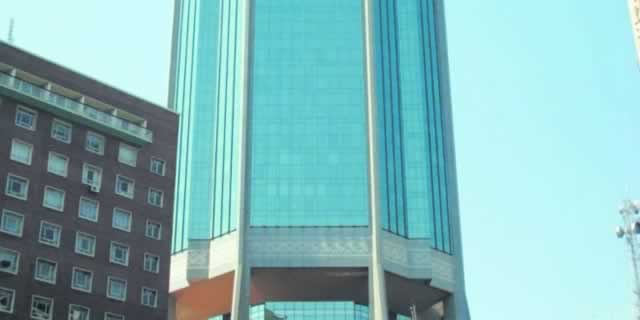Of ancestors and a village sunrise in the dry season

Sekai Nzenza
At dawn the rooster from our village compound begins the first call. Others from nearby villages and across the river follow. Then there is a peaceful and almost serene silence. Up in the clear sky, Nyamatsatse – the morning star – shines so beautifully. It is the beginning of September and my cousin Piri and I are up at dawn. We are taking a long walk across the Save River to the village councillor’s place for a development meeting. Piri is grumbling and moody because she does not want to get up this early when we are in the village. I ignore her complaints and keep walking way ahead of her.
Why else should she get free rides and drinks to the village unless she participates in the Simukai Development Project?
We are in the dry season. The cold spell is gone. August or Nyamavhuvhu, the month of the winds, has just left us. The trees are in various stages of losing leaves and bringing on new ones. Back in Harare, as you drive out of town along the road to Murehwa and other places, you see the indigenous mutondo trees displaying a beautiful array of bright red and orange leaves.
In town, the jacaranda trees are showing the first signs of purple. In the coming month, if you drive along Leopold Takawira Street near Parirenyatwa Hospital and along the Avenues, you will see a whole carpet of purple on the ground and massive jacaranda purple flowers decorating the trees.
This is beautiful, chakanaka chakanaka; the trees grown in the colonial period are magnificent in their various colours at different times. Harare is still a beautiful city.
But we are not in Harare now. The village has its own beauty and sadness, during the time when the seasons change.
Rising at dawn is the best time to listen to the morning. In the old days, when we lived in the village compound down by the river, my grandmother, Mbuya VaMandirowesa, used to get up this early.
She walked many miles to collect her debts from people who used her services as a traditional healer. When they were healed of their ailments, they promised to bring grain, a chicken or a goat as payment. But often, they did not come back. So Mbuya woke up at dawn and arrived at their doorsteps when they were still in bed.
Their goats and chickens were still sleeping too. If the people took too long to get up, Mbuya simply grabbed their goat or chicken. She then shouted that she had collected what belonged to her, and leave. At sunrise, we used to see her arrive back in the village compound, barefoot, no head scarf but only a bark string tied around her head, a black quilt covering her shoulders and the chicken under her armpit or she was dragging a reluctant goat along with her.
Up on the big granite rock spread I see Mbuya VaMandirowesa’s white grave, imposing, sitting silently looking down the valley. I need a moment at her grave. This is what you do, just to remind the ancestors that you still remember them.
So I tell Piri to keep going because I need a few minutes to listen to the morning. I climb the rock and sit next to Mbuya’s grave, hoping no one sees me. Some people say when life is very hard and you are troubled, you either go to the church alone to pray or you go and talk to your ancestors by their grave side.
But I am not in trouble right now. Yes, trouble did happen, like the time when I got swindled a lot of money by a conman who promised to buy a house for my sister and he did not. I got the money back after much legal fighting. There have been difficult times. But today, I am not here to ask for help but to celebrate the past and acknowledge the beauty of the landscape and feel the sadness of the disappearing trees.
I hear baboons fighting high up in the Mbire Mountains further down the Save River. I listen to the wind. It comes from down below and blows over the granite rocks. The big trees that used to shield this place from the wind are gone.
When Mbuya, Sekuru Dickson and the rest of the extended family were settled here by the Southern Rhodesia government in the 1930s, this was virgin land. Lions, buffaloes, wildebeests, elands, kudus, impalas and rhinos roamed these mountains and valleys.
Sekuru Dickson and my uncles used to hunt and shoot elands, wild pigs and bucks up in the Hwedza Mountains and in the Save River basin. Those big animals are gone now.
Some were hunted and eaten as game meat. The rest were all rounded up and taken to the game parks. All that is left in these hills are baboons, rabbits, snakes, birds, squirrels, skunks and all kinds of butterflies and insects.
Some people have started burning grass and trees in this dry season. Every night you see fire burning on the mountains and in the valleys. There are some axe-mutilated tree trunks everywhere. Black soot and white ash blows in the cold early morning wind. Except for a few waterholes, the two rivers, Chidzikisa and Chinyika nearby are almost dry. Down in the valley, there are no boreholes. People are getting sick from drinking water from the same spot as the cattle, goats and the baboons.
From these high granite kopje rocks, I have three hundred 60 degree views of the valley below and the surrounding hills. Although many people have left the villages and moved to the resettlement areas following the land reform programmes, there are many small compounds with several huts and granaries.
Our family remained here because my mother said she could not leave the graves unattended. Now she lies on the anthills next to my father and my other siblings who have since passed on. I too, will remain here to tend the graves.
Across the river going northeast are the Hwedza Mountains where our ancestors used to dig iron ore before the white men came. Along the Mbire Mountains is the Save River.
Save winds smoothly like a big snake all the way to the Limpopo River bordering Zimbabwe and South Africa and then it pours its waters into the Indian Ocean.
As children, we used to fish and swim only in the Chinyika River. We were not allowed to go to Save River at all. There were plenty of fierce crocodiles, hippos and big fish in the Save River. They are still there.
I lean against Mbuya’s s grave and listen to the wind blow over the granite rocks. Mbuya’s grave is large and square, built with cement about a metre high and two or a bit more metres long. They did not put a cross at the head of the grave as they do on some graves. Nobody knew Mbuya’s date of birth. It was all guess work. Because she was the daughter of Chief Kwenda, Mbuya was buried on top of this huge granite rock that looks more like a bare hill.
Back in the days before the white man came, our royals were buried on top of rocks or they were mummified in caves. Cecil John Rhodes, the empire builder, liked our royal tradition of burial so much that he chose to be buried on top of a granite rock at Matopos, in the southern part of Zimbabwe, even though he was not from here and he was not royalty. His grave is still there and many tourists from England come and look at Cecil’s grave, so they can remember their ancestor, the way we remember ours.
Just before the sun rises, the silent morning is disturbed by the voice of Ndodye. He is our village crier. He stands on top of the anthill below announcing meetings, gatherings and ceremonies.
Ndodye has a big voice. He used to be a soldier during the liberation war for Zimbabwe. People say he learnt to command people when he was in the army and his voice became louder and louder. Ndodye keeps on with his list for the day and the week announcing various meetings: kurova guva – the ceremony bringing the deceased spirits back home, burial society meetings, political meetings, funerals, donor food distributions, community development meetings and occasionally, roora, the bride price ceremony.
September and October are the months of ceremonies and rituals. All ceremonies to honour the ancestral spirits must be done before the rains come in November. November is Mbudzi, the month of the goat and no ceremonies can be held then. During Mbudzi month, the goats go wild making love and giving birth.
This is not the month to elope or to pay the bride price either. Such marriages done in November are bound to fail. Performing any serious celebrations, rituals or ceremonies in November will anger the ancestors.
I quietly say goodbye to Mbuya’s grave and her spirits and walk down the granite rock. I find Piri curled up in her wrap-around cloth, sleeping next to a bush. I kick her gently and she mumbles something rude about the strangeness of people who visit graves in the morning.
As we walk towards the river, we smell the veld fires from last night. Smoke shoots up to the sky from the scattered village huts. Then it spreads out like a thin cloud to join the mist from the valley. The morning birds greet each other and there is still the odd distant rooster’s cry.
Dr Sekai Nzenza is the CEO of Rio Zim Foundation. She writes in her personal capacity.








Comments